
Donji Grad: The Heartbeat of Zagreb
Donji Grad, or the Lower Town, is the vibrant core of Zagreb, Croatia's bustling capital. This neighbourhood is a harmonious blend of historical grandeur and modern-day elegance. As you stroll through its streets, you'll be surrounded by beautifully preserved 19th-century buildings, lush parks, and a variety of cafes and restaurants that beckon you to sit and soak in the local atmosphere. Begin your journey at Ban Jelačić Square, the central hub of Donji Grad, where both locals and tourists converge. From here, you can easily access many of the city's main attractions. A short walk takes you to Zrinjevac Park, a green oasis perfect for a leisurely stroll or a peaceful break under the shade of century-old trees. The park's fountains and flowerbeds offer a picturesque setting, making it a favourite spot for photographers. Art enthusiasts will find Donji Grad a treasure trove of cultural delights. The neighborhood is home to several key museums, including the Mimara Museum, which boasts an impressive collection of European art, and the Croatian National Theatre, an architectural gem that hosts a variety of performances. For a taste of local life, explore the Dolac Market, where you can sample fresh produce and artisanal goods while mingling with vendors who have been part of this tradition for generations. Donji Grad's streets are lined with an array of shops, from high-end boutiques to charming antique stores, offering a shopping experience that caters to all tastes. After a day of sightseeing and shopping, treat yourself to the culinary delights available in the neighbourhood. Whether you're in the mood for traditional Croatian dishes or international cuisine, Donji Grad's diverse restaurant scene has something to satisfy every palate.
Local tips in Donji Grad
- Visit Ban Jelačić Square early in the morning to avoid crowds and enjoy a peaceful start to your day.
- Wear comfortable shoes, as the best way to explore Donji Grad is on foot.
- Check the schedule at the Croatian National Theatre ahead of time to catch a live performance.
- Spend some time in Zrinjevac Park during the late afternoon for the best light for photos.
- Try local delicacies at the Dolac Market for an authentic culinary experience.
Donji Grad: The Heartbeat of Zagreb
Donji Grad, or the Lower Town, is the vibrant core of Zagreb, Croatia's bustling capital. This neighbourhood is a harmonious blend of historical grandeur and modern-day elegance. As you stroll through its streets, you'll be surrounded by beautifully preserved 19th-century buildings, lush parks, and a variety of cafes and restaurants that beckon you to sit and soak in the local atmosphere. Begin your journey at Ban Jelačić Square, the central hub of Donji Grad, where both locals and tourists converge. From here, you can easily access many of the city's main attractions. A short walk takes you to Zrinjevac Park, a green oasis perfect for a leisurely stroll or a peaceful break under the shade of century-old trees. The park's fountains and flowerbeds offer a picturesque setting, making it a favourite spot for photographers. Art enthusiasts will find Donji Grad a treasure trove of cultural delights. The neighborhood is home to several key museums, including the Mimara Museum, which boasts an impressive collection of European art, and the Croatian National Theatre, an architectural gem that hosts a variety of performances. For a taste of local life, explore the Dolac Market, where you can sample fresh produce and artisanal goods while mingling with vendors who have been part of this tradition for generations. Donji Grad's streets are lined with an array of shops, from high-end boutiques to charming antique stores, offering a shopping experience that caters to all tastes. After a day of sightseeing and shopping, treat yourself to the culinary delights available in the neighbourhood. Whether you're in the mood for traditional Croatian dishes or international cuisine, Donji Grad's diverse restaurant scene has something to satisfy every palate.
Iconic landmarks you can’t miss
Ban Josip Jelačić Statue
Discover the historical significance of the Ban Josip Jelačić Statue in Zagreb, a symbol of national pride and cultural heritage in the heart of Croatia.
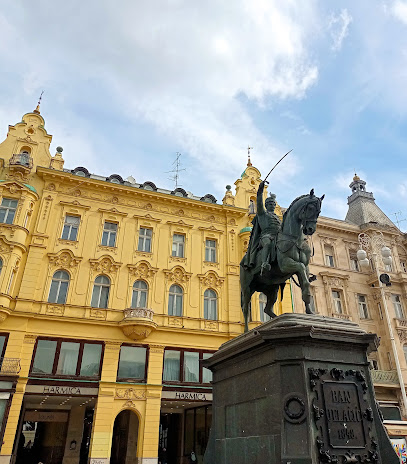
Stone Gate
Discover the Stone Gate, a historic and religious landmark in Zagreb, reflecting the city's rich heritage and spiritual significance.

Lotrščak Tower
Ascend Zagreb's historic Lotrščak Tower for stunning panoramic views and a daily booming cannon salute to tradition since 1877.
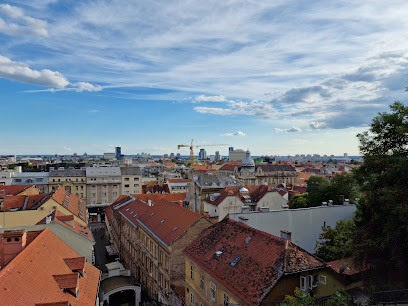
The Well of Life
A captivating bronze sculpture by Ivan Meštrović in Zagreb, symbolizing life's journey from youth to old age.
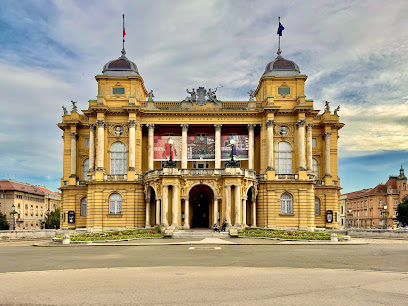
Zagreb's Lower Town (Donji Grad)
Uncover the historical beauty and vibrant culture of Zagreb's Lower Town, a must-visit destination for every traveler seeking adventure and charm.
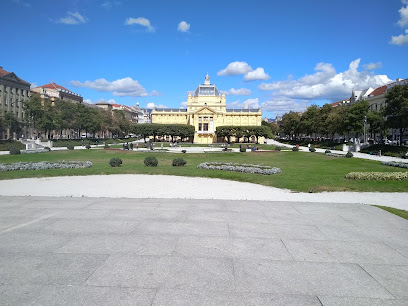
Monument of the Assumption of the Blessed Virgin Mary
Discover the serene beauty and historical significance of the Monument of the Assumption of the Blessed Virgin Mary in the heart of Zagreb, Croatia.
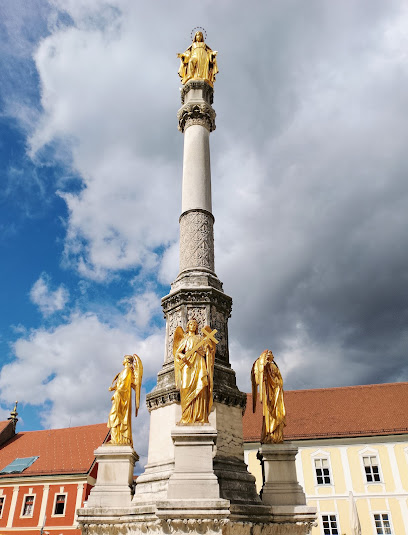
Monument to King Tomislav
A majestic equestrian statue honoring Croatia's first king, Tomislav, in the heart of Zagreb's vibrant city center.
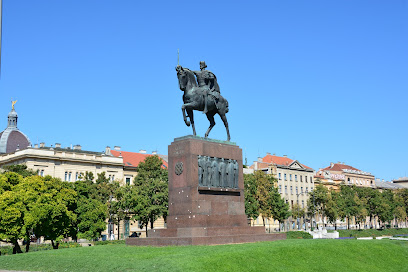
Gornji Grad Zagreb
Explore Zagreb's historic Upper Town: medieval streets, iconic landmarks, and stunning panoramic views await!
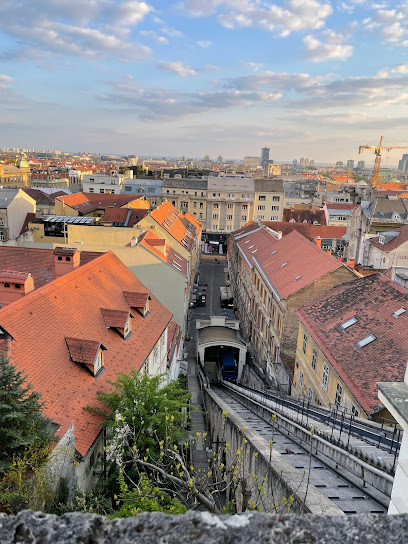
Statue of Andrija Kačić Miošić
Explore the Statue of Andrija Kačić Miošić in Zagreb, a monument celebrating Croatia's literary heritage amid the vibrant city atmosphere.
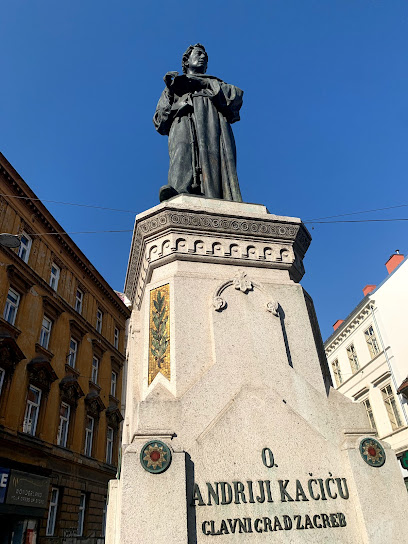
Replika grada Zagreba
Explore Zagreb's history and architecture in miniature at the Replika Grada Zagreba, a captivating attraction in the heart of the Upper Town.
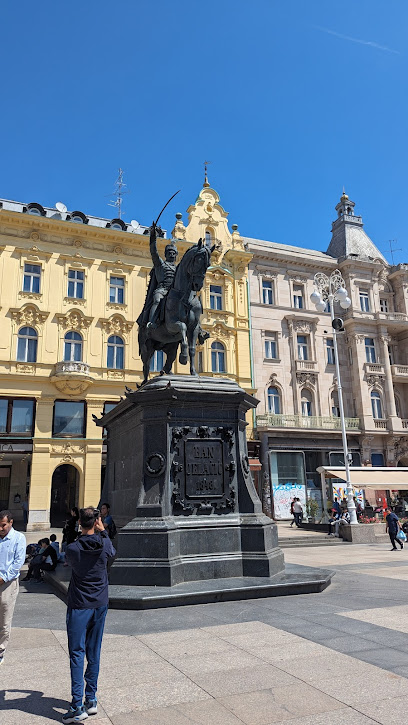
Unmissable attractions to see
Manduševac
Discover Manduševac, a stunning fountain in the heart of Zagreb, where history meets beauty in the vibrant Ban Josip Jelačić Square.
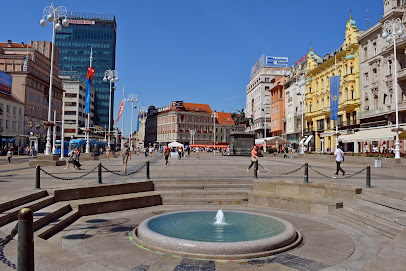
The Well of Life
Explore The Well of Life, a stunning sculpture in Zagreb's main square that embodies the city's artistic spirit and cultural heritage.
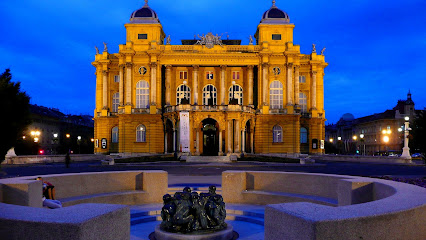
Zagreb
Explore Zagreb, Croatia's dynamic capital, where history meets modern life in a vibrant urban setting filled with culture, cuisine, and charm.
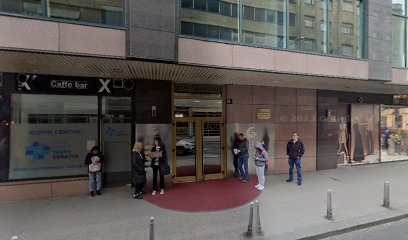
Essential places to dine
Nokturno
Experience authentic European cuisine at Nokturno in Zagreb, where traditional flavors meet modern dining in a cozy atmosphere.
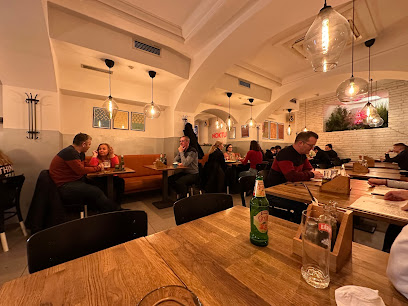
Vinodol
Explore Vinodol in Zagreb: A culinary haven blending traditional Croatian flavors with modern European cuisine.
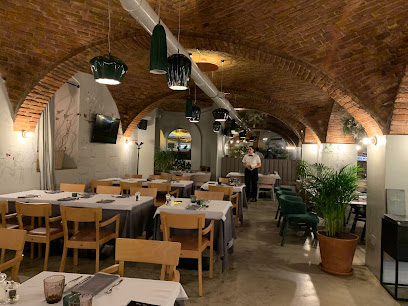
Boban
Experience authentic Italian cuisine at Boban in Zagreb—where tradition meets flavor in every bite.
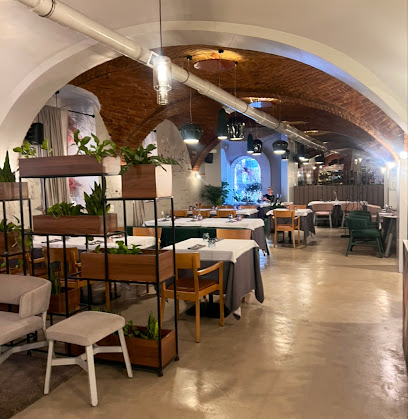
HERITAGE - Croatian Street Food & Shop
Discover authentic Croatian street food and unique souvenirs at Heritage - A culinary delight in the heart of Zagreb.
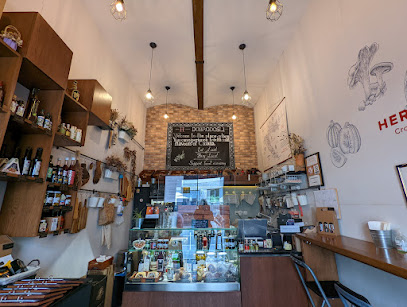
GOSTIONICA RESTORAN PURGER
Discover authentic Croatian cuisine at Gostionica Restoran Purger in Zagreb – where tradition meets taste in every bite.
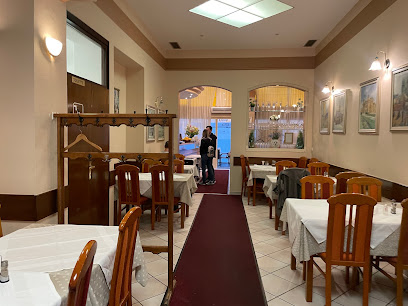
Pod Zidom Bistro
Discover exquisite cuisine and fine wines at Pod Zidom Bistro in Zagreb - your ultimate destination for an unforgettable dining experience.
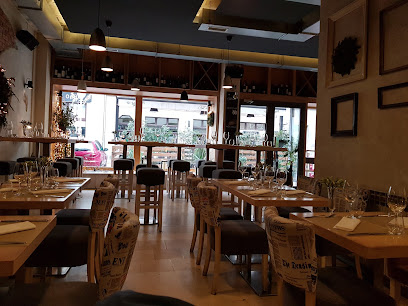
Gostionica Ficlek
Discover authentic Croatian flavors at Gostionica Ficlek in Zagreb, where tradition meets culinary excellence in every dish.
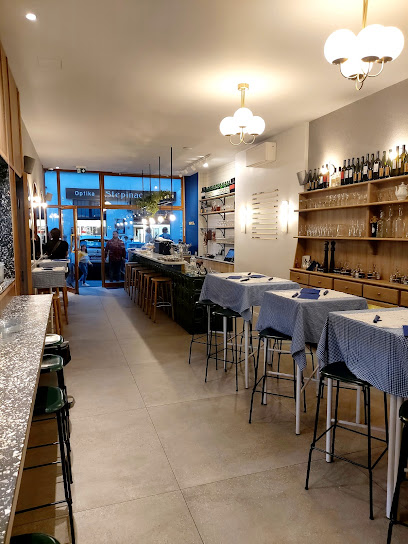
Kai Street Food
Experience the vibrant taste of Croatia at Kai Street Food in Zagreb – where authentic flavors meet modern culinary creativity.
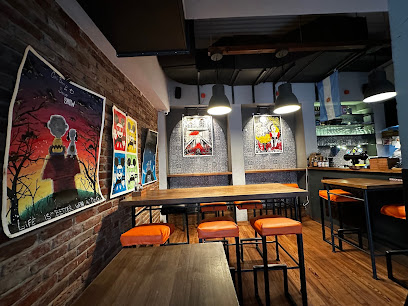
Mali Bar
Discover Mali Bar in Zagreb - A Culinary Haven Offering Innovative Croatian Cuisine and Inviting Atmosphere.
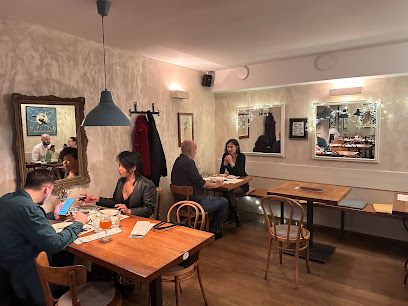
Rougemarin City
Discover Rougemarin City: A top-notch restaurant offering diverse breakfast, brunch, and health food options in the heart of Zagreb.
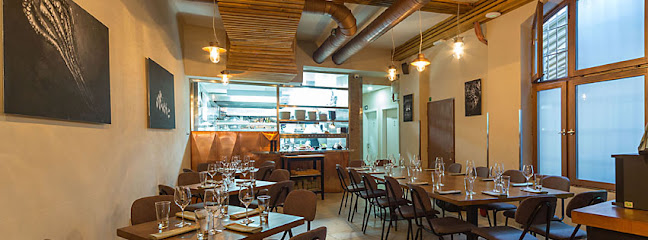
Markets, malls and hidden boutiques
Ornament
Explore a unique blend of local and oriental products at Ornament, the must-visit store in Zagreb for unforgettable souvenirs.
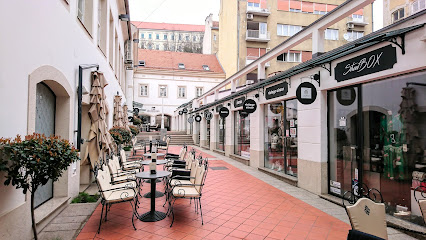
Souvenirs & more ZAGREB
Discover unique Croatian treasures at Souvenirs & More in Zagreb, where culture and creativity come together in a delightful shopping experience.
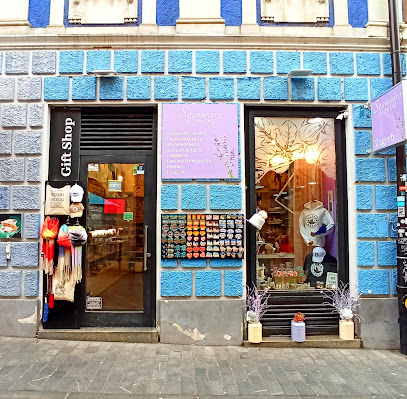
Ulični Ormar
Explore Ulični Ormar in Zagreb for a unique blend of vintage fashion and contemporary styles that reflect the heart of Croatian culture.
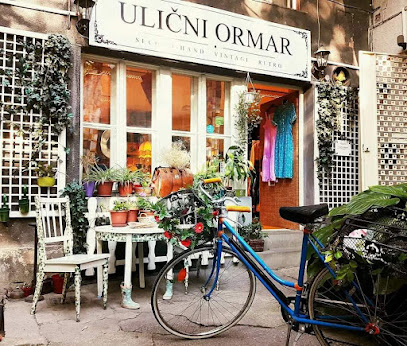
Take Me Home - Croatian Design Shop -
Discover unique Croatian souvenirs at Take Me Home, the heart of Zagreb's artisanal shopping experience, celebrating local craftsmanship and design.
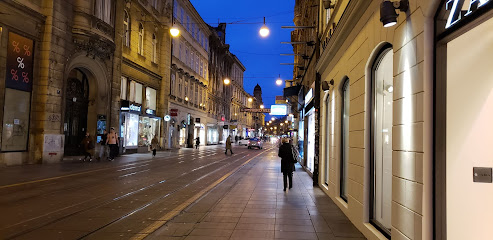
Maria Store - Zagreb
Explore the latest in fashion and accessories at Maria Store in Zagreb, where style meets local charm for an unforgettable shopping experience.
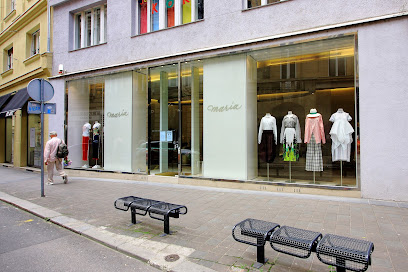
Šopingholičarka
Explore Šopingholičarka in Zagreb for a unique shopping experience with a curated collection of trendy clothing and accessories.
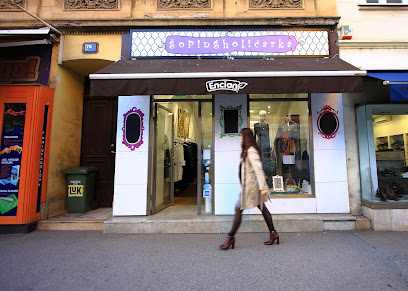
Mango Sticky Rice Vintage
Discover unique vintage fashion at Mango Sticky Rice Vintage in Zagreb, where every piece tells a story and style meets nostalgia.
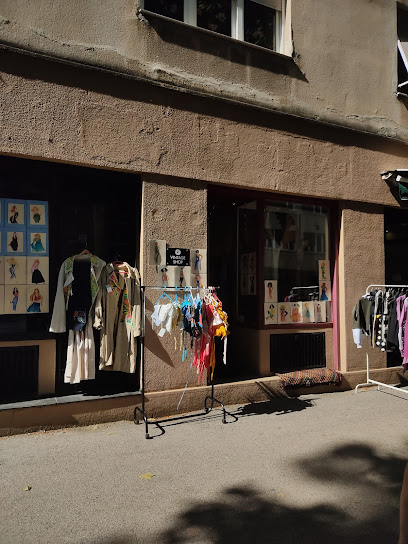
GARDEROBA Concept Store ZAGREB
Explore the vibrant fashion scene at GARDEROBA Concept Store in Zagreb, where unique designs meet local craftsmanship and modern style.
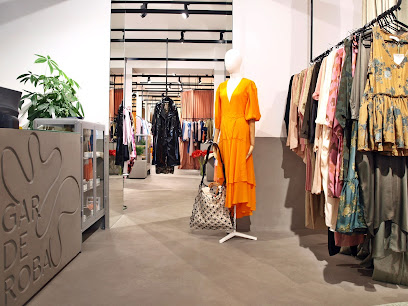
indigo store
Explore Indigo Store in Zagreb for unique fashion and handcrafted treasures that capture the essence of Croatian culture.
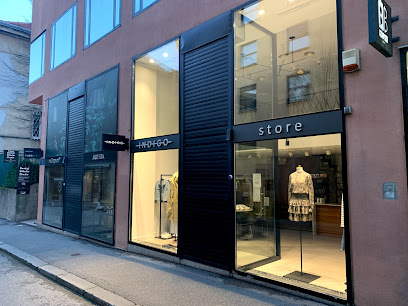
high vogue
Discover the chic fashion haven of High Vogue in Zagreb, where contemporary style meets local artistry in an unforgettable shopping experience.
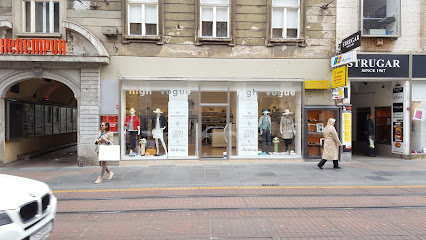
Croatian Memory Shop
Explore the enchanting Croatian Memory Shop for unique souvenirs, artisanal chocolates, local wines, and exquisite jewelry in the heart of Zagreb.

Litory - a little story land
Explore the enchanting Litory store in Zagreb, where creativity meets storytelling through unique crafts and delightful souvenirs for every traveler.
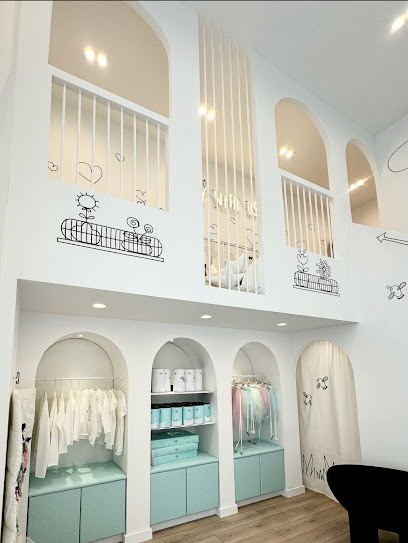
Museum Shop
Explore the Museum Shop in Zagreb for unique gifts that embody the spirit of Croatian culture and craftsmanship.
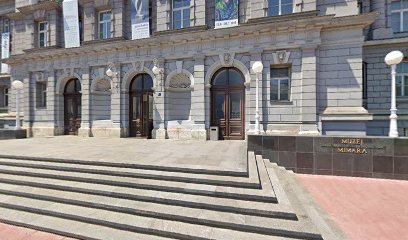
Essential bars & hidden hideouts
The Swanky Bar
Experience the vibrant nightlife of Zagreb at The Swanky Bar, where stylish ambiance meets an extensive drink menu for a memorable evening.
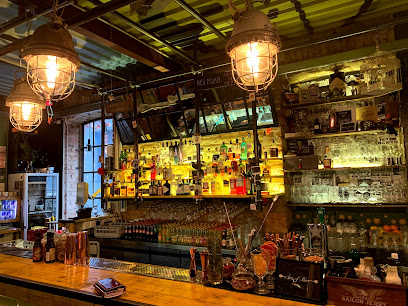
La Bodega Zagreb
Experience the essence of Croatian wine culture at La Bodega Zagreb, a charming wine bar in the heart of the city with a diverse selection and warm atmosphere.
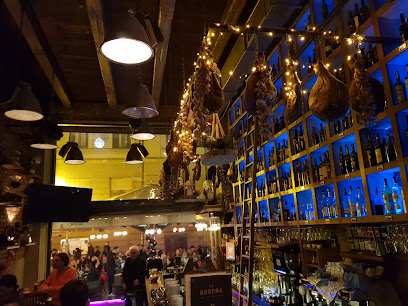
Mojo bar, wine rakija & co.
Discover the vibrant flavors of Croatia at Mojo Bar, Zagreb's premier wine bar, offering a delightful selection of wines and rakija in a cozy atmosphere.
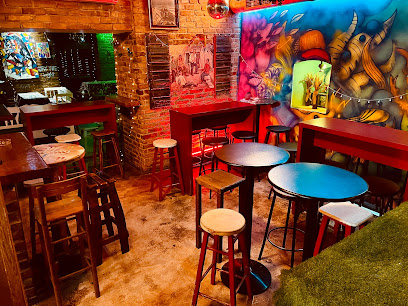
The Old Pharmacy
Discover the charm of Zagreb at The Old Pharmacy, a historic pub offering a unique blend of rich heritage and vibrant social atmosphere.
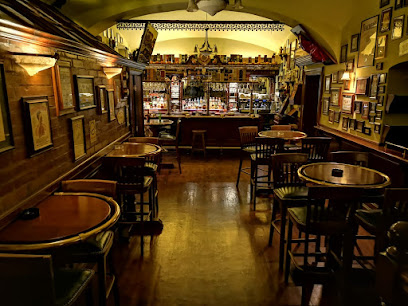
Hemingway Lounge Bar
Discover the essence of Zagreb nightlife at Hemingway Lounge Bar, where delicious drinks meet a vibrant atmosphere in the heart of the city.
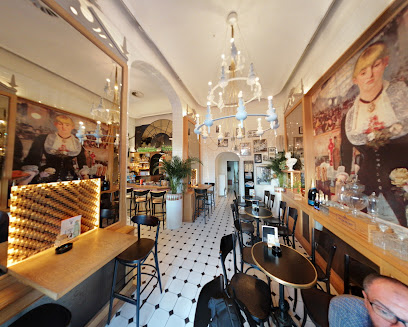
Don Quijote
Experience the charm of Zagreb at Don Quijote, a premier wine bar offering an exquisite selection of wines and delightful small plates in an elegant setting.
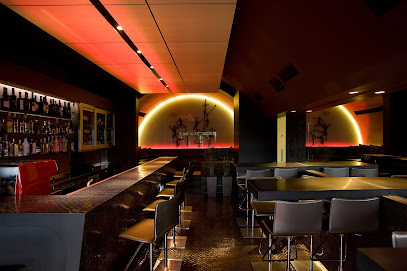
La Cubanita Bar Zagreb
Discover the lively ambiance and flavorful cocktails at La Cubanita Bar, a vibrant hotspot in Zagreb's nightlife scene.
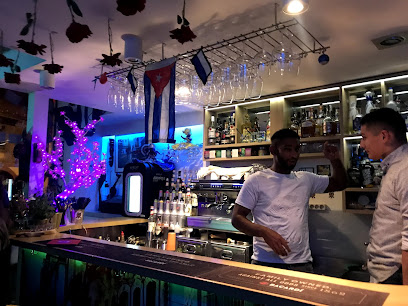
Bustan Bar
Experience the vibrant nightlife of Zagreb at Bustan Bar, where great drinks and lively atmosphere await you.
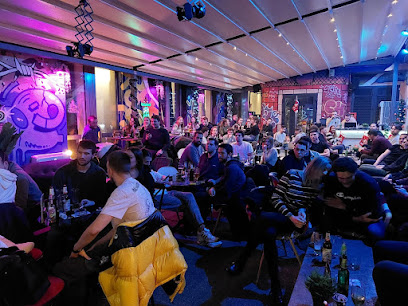
Jiggy – Music Bar & Food
Experience the vibrant nightlife of Zagreb at Jiggy – a lively music bar offering fantastic food and a warm atmosphere.
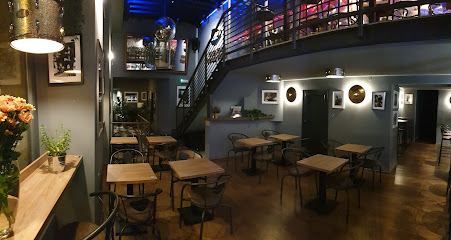
Red Red Wine
Experience the best of Zagreb's nightlife at Red Red Wine, where a diverse selection of wines meets a cozy, inviting atmosphere.
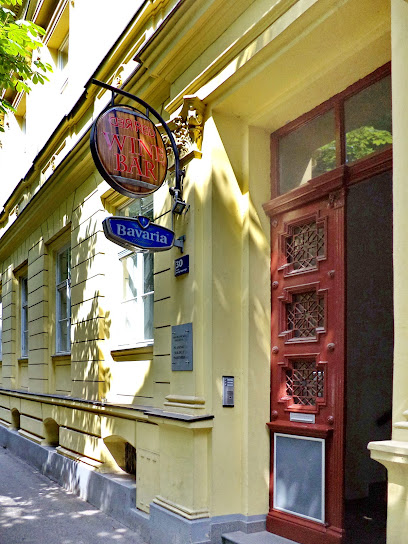
Local Phrases
-
- HelloBok
[bohk] - GoodbyeDoviđenja
[doh-vee-jen-ya] - YesDa
[dah] - NoNe
[neh] - Please/You're welcomeMolim
[moh-leem] - Thank youHvala
[hvah-lah] - Excuse me/SorryOprostite
[oh-proh-stee-teh] - How are you?Kako si?
[kah-koh see] - Fine. And you?Dobro. A ti?
[doh-broh. ah tee] - Do you speak English?Govorite li engleski?
[goh-voh-ree-teh lee ehn-glehs-kee] - I don't understandNe razumijem
[neh rah-zoo-mee-yem]
- HelloBok
-
- I'd like to see the menu, pleaseMolio bih jelovnik, molim
[moh-lee-oh beeh yeh-lohv-neek, moh-leem] - I don't eat meatNe jedem meso
[neh yeh-dem meh-soh] - Cheers!Živjeli!
[zhee-vyeh-lee] - I would like to pay, pleaseŽelio bih platiti, molim
[zheh-lee-oh beeh plah-tee-tee, moh-leem]
- I'd like to see the menu, pleaseMolio bih jelovnik, molim
-
- Help!Upomoć!
[oo-poh-mohtch] - Go away!Odlazi!
[oh-dlah-zee] - Call the Police!Pozovite policiju!
[poh-zoh-vee-teh poh-lee-tsee-yoo] - Call a doctor!Pozovite doktora!
[poh-zoh-vee-teh dohk-toh-rah] - I'm lostIzgubio sam se
[eez-goo-b-yoh sahm seh] - I'm illBolesan sam
[boh-leh-sahn sahm]
- Help!Upomoć!
-
- I'd like to buy...Želio bih kupiti...
[zheh-lee-oh beeh koo-pee-tee] - I'm just lookingSamo gledam
[sah-moh gleh-dahm] - How much is it?Koliko to košta?
[koh-lee-koh toh koh-shtah] - That's too expensiveTo je pre skupo
[toh yeh preh skoo-poh] - Can you lower the price?Možete li spustiti cijenu?
[moh-zheh-teh lee spoo-stee-tee tsee-yeh-noo]
- I'd like to buy...Želio bih kupiti...
-
- What time is it?Koliko je sati?
[koh-lee-koh yeh sah-tee] - It's one o'clockJedan je sat
[yeh-dahn yeh saht] - Half past (10)Pola (deset)
[poh-lah (deh-seht)] - MorningJutro
[yoo-troh] - AfternoonPopodne
[poh-pohd-neh] - EveningVečer
[veh-chehr] - YesterdayJučer
[yoo-chehr] - TodayDanas
[dah-nahs] - TomorrowSutra
[soo-trah] - 1Jedan
[yeh-dahn] - 2Dva
[dvah] - 3Tri
[tree] - 4Četiri
[cheh-tee-ree] - 5Pet
[peht] - 6Šest
[shehst] - 7Sedam
[seh-dahm] - 8Osam
[oh-sahm] - 9Devet
[deh-veht] - 10Deset
[deh-seht]
- What time is it?Koliko je sati?
-
- Where's a/the...?Gdje je...?
[gdyeh yeh] - What's the address?Koja je adresa?
[koh-yah yeh ah-deh-sah] - Can you show me (on the map)?Možete li mi pokazati (na karti)?
[moh-zheh-teh lee mee poh-kah-zah-tee (nah kahr-tee)] - When's the next (bus)?Kada je sljedeći (autobus)?
[kah-dah yeh sl-yeh-deh-chee (ow-toh-boos)] - A ticket (to ....)Jednu kartu (do ....)
[yehd-noo kahr-too (doh)]
- Where's a/the...?Gdje je...?
History of Donji Grad
-
Donji Grad, or Lower Town, emerged as a significant part of Zagreb in the 19th century, following the establishment of the city in 1094. The area was originally home to the nobility and merchants, leading to its development as a commercial and administrative center. The layout of Donji Grad was meticulously planned, with wide streets and squares designed in the Austro-Hungarian style, which greatly influenced its architectural character.
-
The late 19th century brought major changes to Donji Grad as it expanded under the Austro-Hungarian Empire. This period saw the construction of several notable buildings, including the Croatian National Theatre, completed in 1895, and the iconic Art Pavilion. These structures reflect the cultural aspirations of the time and showcase the architectural styles that flourished in Zagreb during this era.
-
In the 20th century, Donji Grad solidified its reputation as a cultural hub. The establishment of numerous theatres, galleries, and museums, including the Museum of Broken Relationships, transformed the neighbourhood into a center for arts and culture. This was also a time of political upheaval, with Donji Grad witnessing significant events during the Croatian War of Independence in the 1990s, which impacted the social fabric of the area.
-
Following the end of the war, Donji Grad underwent extensive reconstruction and modernization. Efforts were made to restore historic buildings and improve urban infrastructure. The revitalization of public spaces, such as Zrinjevac Park, has made the neighbourhood a popular destination for both locals and tourists, blending historical charm with contemporary life.
-
Today, Donji Grad serves as the administrative and commercial heart of Zagreb, housing important institutions such as the City Hall and the main post office. The neighbourhood's vibrant café culture, combined with its historical significance, makes it a lively area for social interaction and cultural exchange, reflecting the dynamic identity of modern Zagreb.
Donji Grad Essentials
-
Donji Grad is easily accessible from various parts of Zagreb. If you are arriving from the main train station (Zagreb Glavni Kolodvor), you can reach Donji Grad by a short walk, as it is located just a few blocks away. For those coming from Zagreb Airport, the airport shuttle service operates frequent transfers to the city center. Additionally, trams and buses provide direct connections to Donji Grad from other neighborhoods, with tram lines 1, 6, 11, and 12 being particularly useful.
-
Donji Grad is well-serviced by Zagreb's public transport system, including trams and buses. The tram network is extensive, and you can easily navigate through the neighborhood and beyond. Tickets can be purchased at kiosks or via the mobile app. Bicycles are also a popular mode of transport; you can rent bikes from various rental stations throughout the area. Walking is another excellent option, as many attractions are within a short distance from each other.
-
Donji Grad is generally safe for tourists, but standard precautions should be taken. Areas around the main train station and some less-populated streets may experience petty crime, such as pickpocketing. It is advisable to stay vigilant and avoid displaying valuable items in crowded places. At night, it's best to stick to well-lit areas and avoid wandering into quieter, isolated streets.
-
In case of an emergency, dial 112 for police, fire, or medical assistance. The main hospital, KBC Zagreb, is located close to Donji Grad, and there are several clinics and pharmacies in the area. It’s advisable to have travel insurance that covers medical emergencies. For non-urgent issues, the local pharmacies can provide assistance or over-the-counter medication.
-
Fashion: Do wear comfortable shoes for walking, as cobblestone streets are common. Don’t wear overly casual clothing when visiting upscale venues. Religion: Do be respectful when visiting churches and religious sites. Don’t take photos where prohibited. Public Transport: Do validate your ticket before boarding. Don’t eat or drink on public transport. Greetings: Do greet with a friendly 'Dobar dan' (Good day). Don’t use overly familiar terms unless you know the person well. Eating & Drinking: Do try local specialties such as 'štrukli'. Don’t refuse food or drink offered to you, as it can be considered rude.
-
To experience Donji Grad like a local, visit the Dolac Market early in the morning for fresh produce and local delicacies. Enjoy a coffee at one of the many cafes lining the streets, as this is a popular local pastime. Take time to explore the lesser-known streets to discover hidden gems, such as small galleries and artisan shops. Additionally, join locals in the parks during the evenings, where you can engage with the community and enjoy the vibrant atmosphere.
Nearby Cities to Donji Grad
-
Things To Do in Rogaška Slatina
-
Things To Do in Ptuj
-
Things To Do in Celje
-
Things To Do in Maribor
-
Things To Do in Velenje
-
Things To Do in Bihac
-
Things To Do in Kamnik
-
Things To Do in Ljubljana
-
Things To Do in Zalaegerszeg
-
Things To Do in Škofja Loka
-
Things To Do in Postojna
-
Things To Do in Opatija
-
Things To Do in Keszthely
-
Things To Do in Graz
-
Things To Do in Banja Luka













